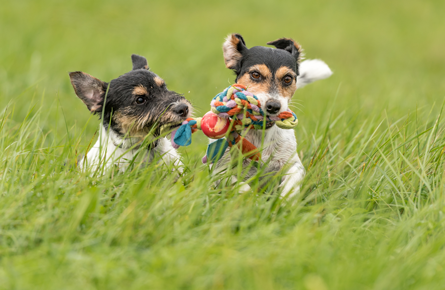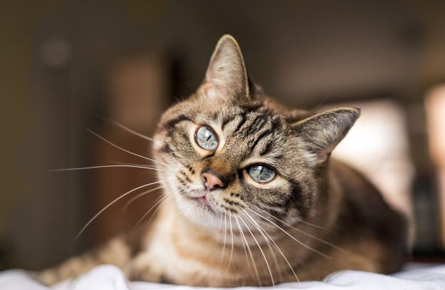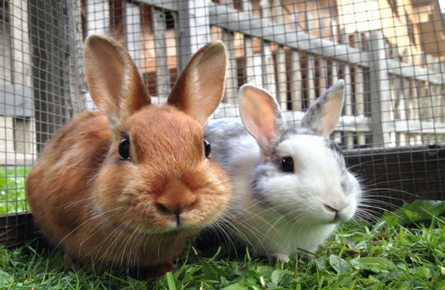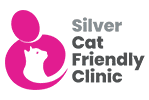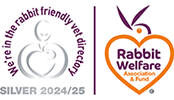Animals are experts at concealing signs of oral pain and dental issues. Even those suffering from serious conditions like exposed roots, swollen gums, or infected teeth may continue eating, displaying only subtle signs of discomfort. This can result in the need for multiple tooth extractions instead of just one.
Brushing alone cannot remove existing plaque and tartar; a professional scale and polish is required to thoroughly clean the teeth and prevent further buildup. Regular pet dental care, including brushing, can greatly reduce the likelihood of needing more invasive treatments.
All dental procedures require anesthesia. However, a routine scale and polish uses less anesthesia compared to multiple extractions, making it a smarter choice for maintaining long-term oral health.

Signs of poor pet dental care
- Bad breath (halitosis)
- Visible tartar build-up on teeth (brown colouration on surface of teeth)
- Red or inflamed gums (gingivitis)
- Discoloured teeth
- Loose teeth
Signs of severe dental disease in pets
- Drooling
- Bleeding from the mouth
- Slowness or reluctance to eat
- Chewing on one side of the mouth
- Dropping food from the mouth when eating
- Swelling around the mouth
We are happy to answer any questions you may have, as well as advising you on the recommended products or dental diets for your pet. Contact Sandhole Vets in Snodland, Kent for a consultation.
Preventing Pet Dental Disease: Tips and Care Routines
Daily brushing is essential for keeping your pet’s teeth healthy. It’s best to start this routine when they’re young, but you can begin at any age. The team at Sandhole Vets can offer guidance on how to introduce this habit.
In addition to brushing, regular professional dental cleanings are highly beneficial, much like human dental care. These cleanings, performed under a brief general anesthetic, ensure thorough cleaning while keeping both your pet and our staff safe.
We're happy to answer any questions you might have and provide advice on recommended products or dental diets for your pet.
Pet Dental Care FAQs
What is dental disease?
Dental disease can vary from mild to severe. In the early stages of dental disease plaque and tartar begin to build on the surface of the tooth. As plaque and tartar continue to build the gum around the tooth can become inflames (gingivitis). Left untreated, the inflamed gum will begin to recede, exposing the root of the tooth. Ultimately the tooth may be lost. Dental disease can occur following trauma where a tooth is fractures
Is my pet in pain if they have dental disease?
Yes. Your pet’s teeth are made up in the same way as our teeth with the same nerves and sensations. They experience dental pain in the same way as we do. However, pets are very good at hiding this pain and it can often be difficult to identify they are in pain.
Who will check if my pet has dental disease?
Our nurses can assess your pet’s teeth for free during a dental clinic and are fully trained in advising you on techniques to help care for them. In addition, our vets will check your pet’s teeth at each of their examinations for vaccinations or other problems.
What happens during my pet’s dental care?
At the start of your pet’s treatment, we will chart your pet’s mouth. This is a process where we individually assess each tooth and the gums and record any abnormalities. Charting your pet’s teeth ensures no problems are missed and acts as a record if further investigation treatment is required. You will also receive a copy of this chart for your own records. The vet doing your pet’s dental care will then call you to discuss the findings in your pet’s mouth and to recommend what dental treatment is required. You will also be given costs of all treatments. As will all operations your pet will be carefully monitored throughout their anaesthetic.
What is scale and polish procedure?
As with people, a scale and polish involve an ultrasonic scaler held gently against the teeth. The scaler will gently vibrate against the teeth to remove tartar. A high-speed polisher is then used to ensure your pet’s teeth are left smooth and clean. (All patients who require other dental treatment will also have their teeth scaled and polished).
When are dental x-rays taken?
If we are concerned about a tooth showing early signs of decay, we may take an x-ray of the tooth as your own dentist would do. The x-ray allows us to examine the portion of the tooth under the gum (the root) to identify if it’s healthy or not. This information will be used to determine the best treatment for that tooth.
What do dental extractions involve?
In short, dental extractions mean removing teeth. This is only done when a tooth is diseased and, if left in the mouth, will cause further problems. At Crofts Vets Surgery we use surgical extractions to carefully remove teeth which are diseased. This means we use surgical techniques to safely remove the tooth, minimising trauma to the gums and other structures in the mouth. We will then suture the gum. For your pet this means minimal trauma in their mouth and quicker healing time.
What if my pet requires more advanced dental treatment?
On occasion your pet may require more advanced dental techniques such as root canal treatment. These advanced procedures can help to prevent teeth which are showing early signs of disease and can help prevent extractions. If this is required, we can discuss referral options for your pet


